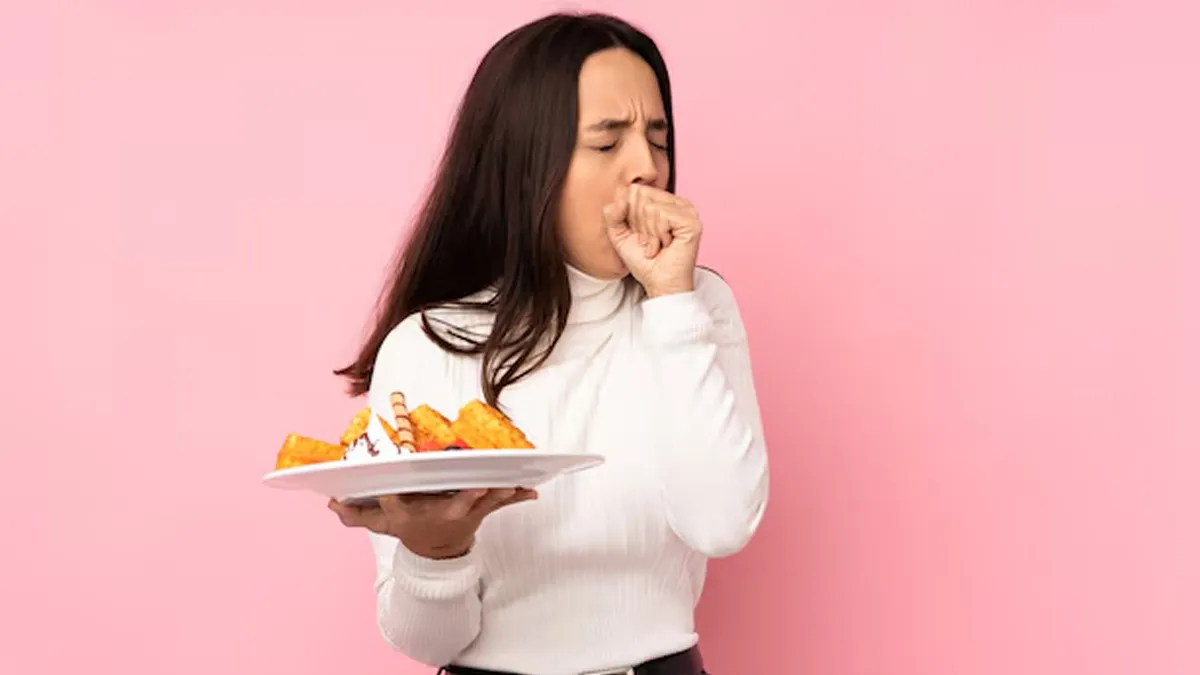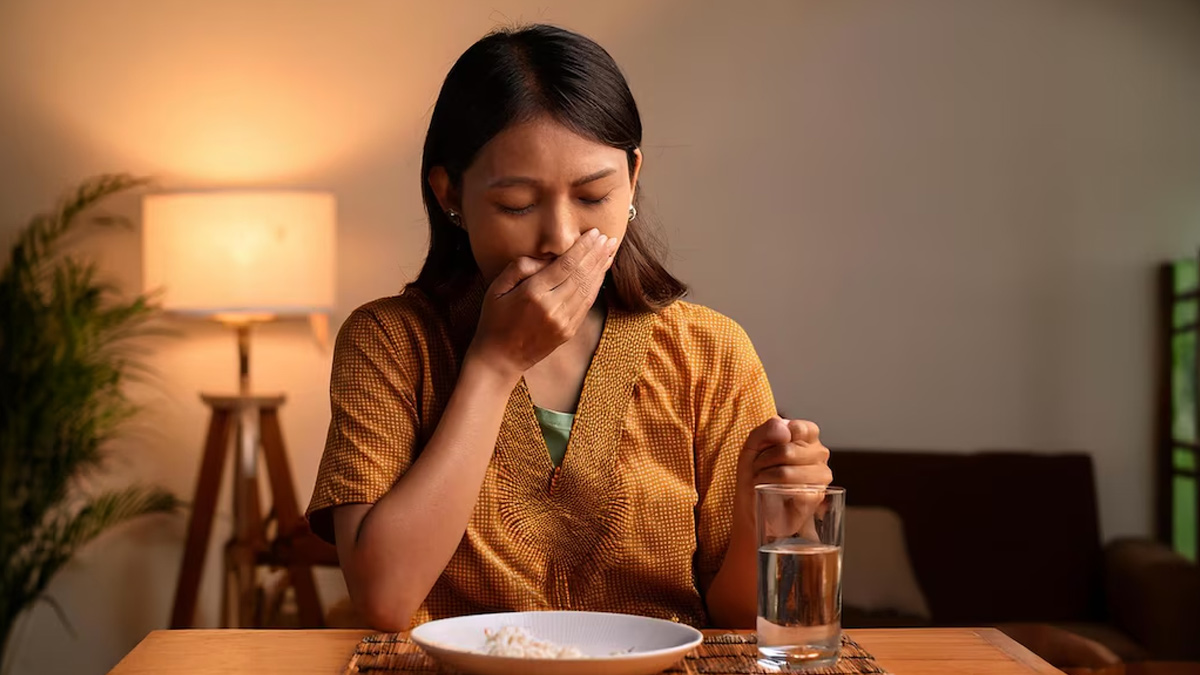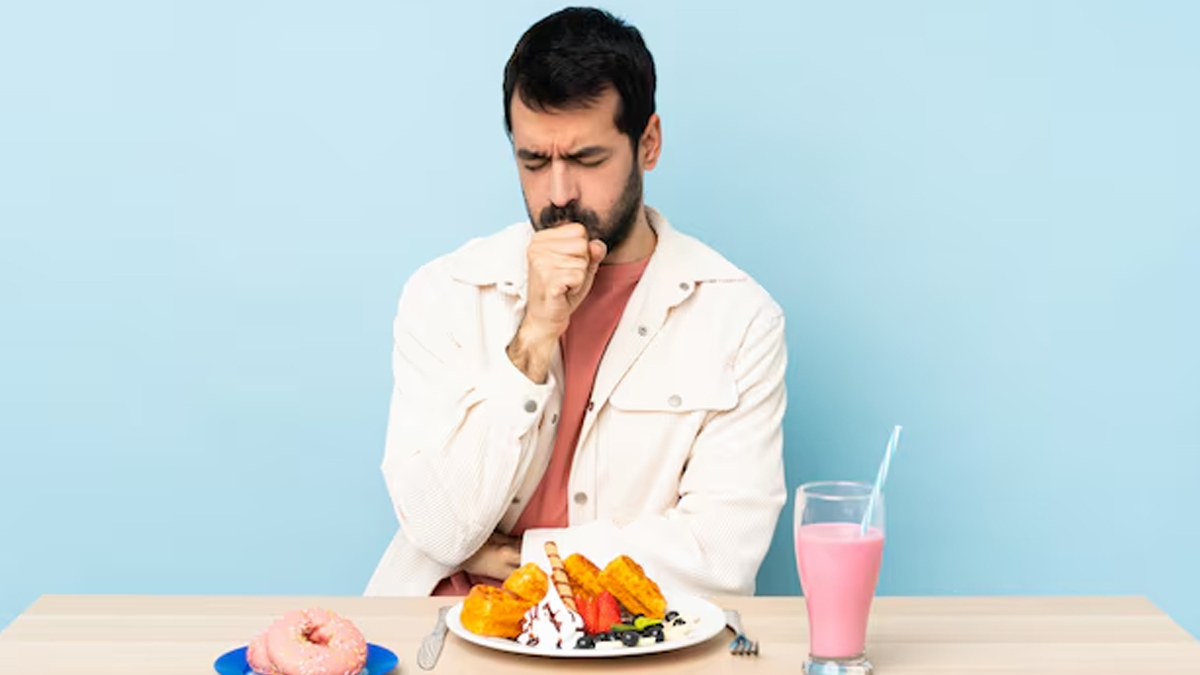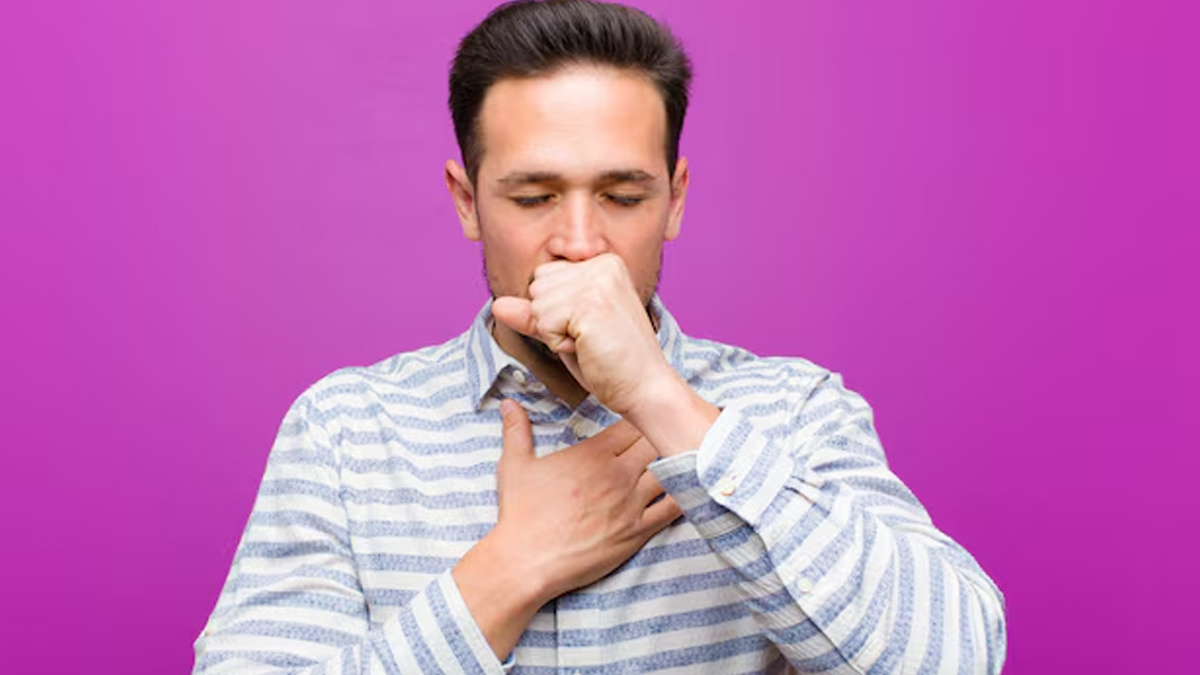
The body has various reflexes, some of which can be unusual, unexpected, and might cause concern. Coughing after a meal can be an example, which is sometimes harmless but can also signal underlying issues.
Table of Content:-
Coughing usually occurs due to a reflex that tries to clear the airways of irritants. From allergies to infections to many other conditions can lead to a cough. However, have you ever wondered what causes post-meal coughs? If you have experienced it, you probably know how distressing it can be. To treat it, it is crucial to know what's causing it. Below, we have listed a few common causes to help you get the treatment you need. However, ensure that you consult a doctor for an accurate diagnosis.
Also Read: Delhi-NCR Has Become A Gas Chamber? Know How Air Pollution Is More Dangerous And Life-Threatening
Could It Be Acid Reflux?

Acid reflux is a digestive condition where stomach acid flows back into the oesophagus, leading to a burning sensation in the chest, commonly known as heartburn. One of the lesser-known symptoms of acid reflux is coughing, often triggered by the body’s protective reflex to prevent food, liquid, or stomach acid from entering the airways. When acid reflux progresses to Gastroesophageal Reflux Disease (GERD), it can irritate the throat and further trigger a persistent cough.
How To Manage Acid Reflux?
To manage acid reflux or prevent the condition, here are a few strategies:
Eating smaller meals more slowly
Quitting smoking
Elevate the head of your bed.
Sleep on your left side
Avoid lying down for three hours after eating.
Take medications like PPIs, antacids, foaming agents, or H2 blockers (as guided by a medical professional).
What Is Aspiration And Could It Be A Reason To Consider?

Aspiration refers to when food, liquid, or objects are inhaled into the lungs. This is particularly common in people who experience dysphagia, or difficulty swallowing, where food or liquid enters the airway or lungs by mistake. This misdirection of food or liquid after swallowing can irritate the airway, causing the body to respond with a cough to clear it out. While a post-meal cough due to dysphagia can be uncomfortable, it is a necessary reflex to prevent food from reaching the lungs, where it could lead to infections like aspiration pneumonia.
How Food Sensitivities And Allergies Cause Post-Meal Cough
Allergies are a common cause of cough, often because they irritate the airways and cause inflammation. Food allergies and sensitivities, which are adverse reactions to specific foods, can also trigger a cough after eating. When someone has a food allergy, their immune system mistakenly identifies certain food components as harmful, overreacting to these substances and prompting symptoms like swelling and coughing as the body attempts to protect itself. Other symptoms also include shortness of breath, wheezing, a runny nose, and in severe cases, anaphylaxis.
How To Manage Post-Meal Cough

Treatment of post-meal coughs can vary depending on the cause and severity of the cough. If it is triggered by acid reflux, you may need to change your dietary habits or seek medical help in curbing the overflow of the acid in your stomach. If your cough is due to dysphagia, you must consult a doctor to avoid further complications like aspiration, which, if left untreated, can lead to pneumonia. Additionally, keep a close eye on your food allergies and sensitivities to avoid any allergic reactions, which include a persistent cough after eating.
If you frequently experience coughing after meals, considering these factors is essential. Identifying the underlying cause can empower you to make informed decisions and manage symptoms more effectively.
Also watch this video
How we keep this article up to date:
We work with experts and keep a close eye on the latest in health and wellness. Whenever there is a new research or helpful information, we update our articles with accurate and useful advice.
Current Version